Chartering a boat can be the vacation of a lifetime. Do yourself a favor and avoid these basic chartering mistakes, based on conversations from vacationing charterers in our marina.
1. During the chart briefing, ask the charter briefing captain about ANYWHERE you’re even remotely thinking of going. At the same time ask about places the boat simply cannot go. I can’t believe the number of charter boats in SW Florida trying to go places they can’t physically go due to draft or other issues. Ask the exact draft of your boat as well as the local tides. Get a tide table and know how to use it for specific anchorages – i.e. add or subtract how much time from the closest tide table. Trust me, having done it, going aground and facing costly (hundred of dollars and up) tow bills will not enhance your vacation.
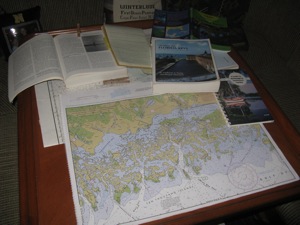
2. Know how long your holding tank should last. The charter company should be able to give you a fairly accurate estimate based on the size of the holding tank and the number of people you’ll have aboard. I am constantly amazed at how many charterers in our area waste an entire day of their vacation sailing out of their way (away from paradise) seeking a marina to pump out their holding tank. Don’t waste a precious day chasing a pump out if you don’t even need one.
3. Do a VHF radio check with the briefing captain before you leave the dock. And ask about what channel should be used for radio checks if necessary while you’re out. It is not appropriate to call the Coast Guard unless your lives are in danger (fire or taking on serious water) or someone is hurt or ill. Ask at the charter briefing who you should call for less important things – usually either the charter company or after hours a local towing service. Sea Tow or Towboat US are always good bets to call for local knowledge if you’re in US waters.
4. Know VHF channels and hours for local bridges. Bridges in SW Florida answer on Channel 9 and only during the hours they’re open. It doesn’t matter if you call them a gazillion times on Channel 16 — or after hours on Channel 9 — they simply are not going to answer.
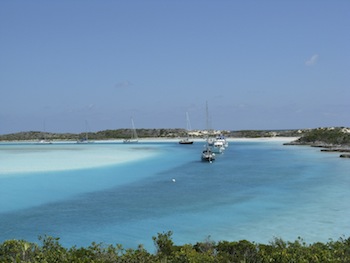
5. Know VHF rules. Channel 16 is for hailing and distress ONLY. No chatting, no matter how brief. Switch to a different channel to tell your charter buddy boat you’re entering the anchorage now. Switch your VHF to 1W (low power) in an anchorage, but don’t forget to switch it back to 25W (high power) when you’re underway. Check to see if any local anchorages have unofficial designated channels. It may be that no one in the anchorage monitors Channel 16, only Channel 68 or whatever. Know before you go.
6. If you plan to go to a marina (or a mooring field), know their hours. If you arrive after hours, often there will be no one there to take your VHF call asking what slip and requesting assistance docking. Some marinas close earlier than you might think and some are not open on Sunday. And don’t keep calling and calling on VHF 16 sounding madder and madder that no one is answering.
7. Try not to run out of water! Ask the charter company how much water you have onboard and how much their average guest uses. Being conservative with water will make it last longer and you won’t have to waste charter time refilling water tanks. A big water saving tip: turn OFF the faucet while brushing your teeth or lathering up in the shower, turn it back on just when you need it. Don’t let it run as you would at home.
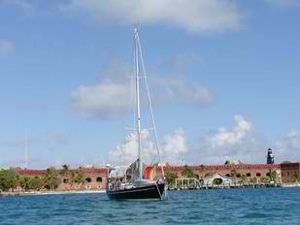
8. Arrive early. Most anchorages or mooring fields are very busy. If you want to stay somewhere, don’t wait until just before sunset to wander in expecting to find a place to anchor or an open mooring ball. You may be unpleasantly surprised … and in a bit of trouble trying to find a place to stay the night.
9. Make sure you have necessary travel documents – valid passports for outside US waters. Double check to make sure they won’t expire while you’re on vacation!
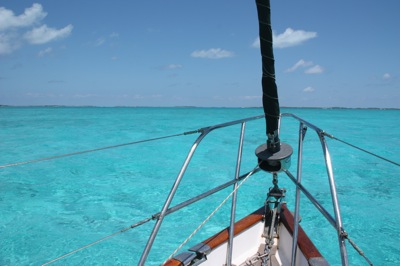
10. Everyone gets seasick sometime. Hopefully it won’t be you, but a swell on the port stern quarter while motorsailing (i.e. diesel fumes in the cockpit) gets me every time. So be prepared. Our medicine of choice is meclizine because we don’t have to take it ahead of time and it kicks in in about 20 minutes (way too long, but better than suffering through the side effects if I don’t need the meds). We get it by asking at the pharmacy. It is not an over the counter drug unless you specify at the pharmacy (behind the counter) that it’s for seasickness. Most pharmacists will insist it’s the same as Bonine, but Bonine puts me to sleep and meclizine doesn’t. Not being a pharmacist, I cannot comment except to say we insist on meclizine.
A few other tips:
1. Pack light, preferably in a soft sided duffel bag rather than a hard sided suitcase that will be difficult to store. A soft duffel bag will simply roll up and vanish after you unpack aboard. Don’t forget an extra swimsuit. No fun putting a chilly clammy not quite dry swimsuit back on the next day. And don’t overlook a rain jacket for an occasional overcast day. A light jacket or sweater for cooler evenings is a good idea as is whatever you’ll want to wear if you go ashore for dinner.
2. Go light on shoes, most people (including me) take too many shoes everywhere. 🙂 Don’t forget that hard soled shoes are not allowed on many boats — you’ll need either boat shoes … or go barefoot aboard & leave your shoes close to where you get on. Usually a pair of water shoes or flip flops, something to walk ashore and maybe a pair to go out to dinner is more than sufficient depending on your itinerary.
3. Don’t forget sunscreen and bugspray. Preferably with no oils – oils stain boat upholstery and are not good aboard.
Above all, enjoy your charter! And remember, you’ll enjoy it more by being prepared with the questions above answered in your charter briefing! If I’ve missed something, please leave a comment and share! Cheers! Jan
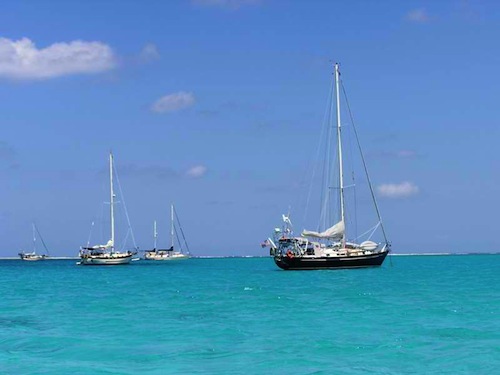










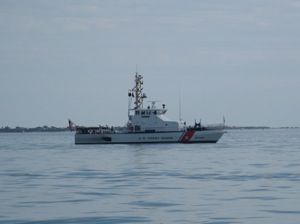

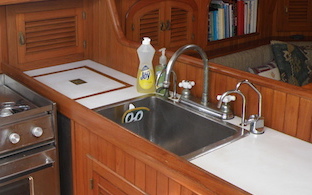
Knowing the exact draft of the boat you are chartering is a good idea.
Thanks Gordon – I reworded the first tip to be more specific about knowing the exact draft of the boat. While I was doing it, it occurs to me that getting a current tide table and knowing how much to add or subtract for where you want to go is also a worthwhile idea. Tide tables can be confusing if you don’t realize to add or subtract time — unless you happen to be in the exact vicinity of the table prediction, of course. Cheers!
Next step after northside!